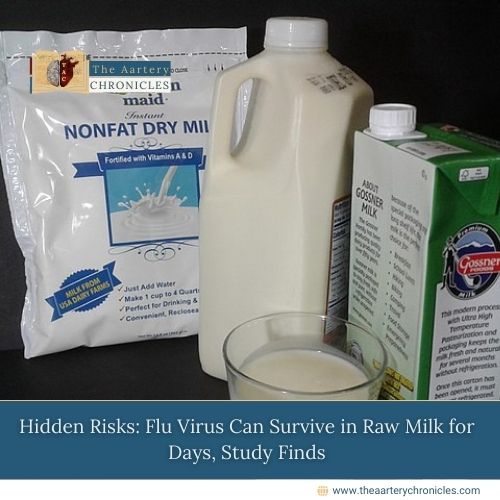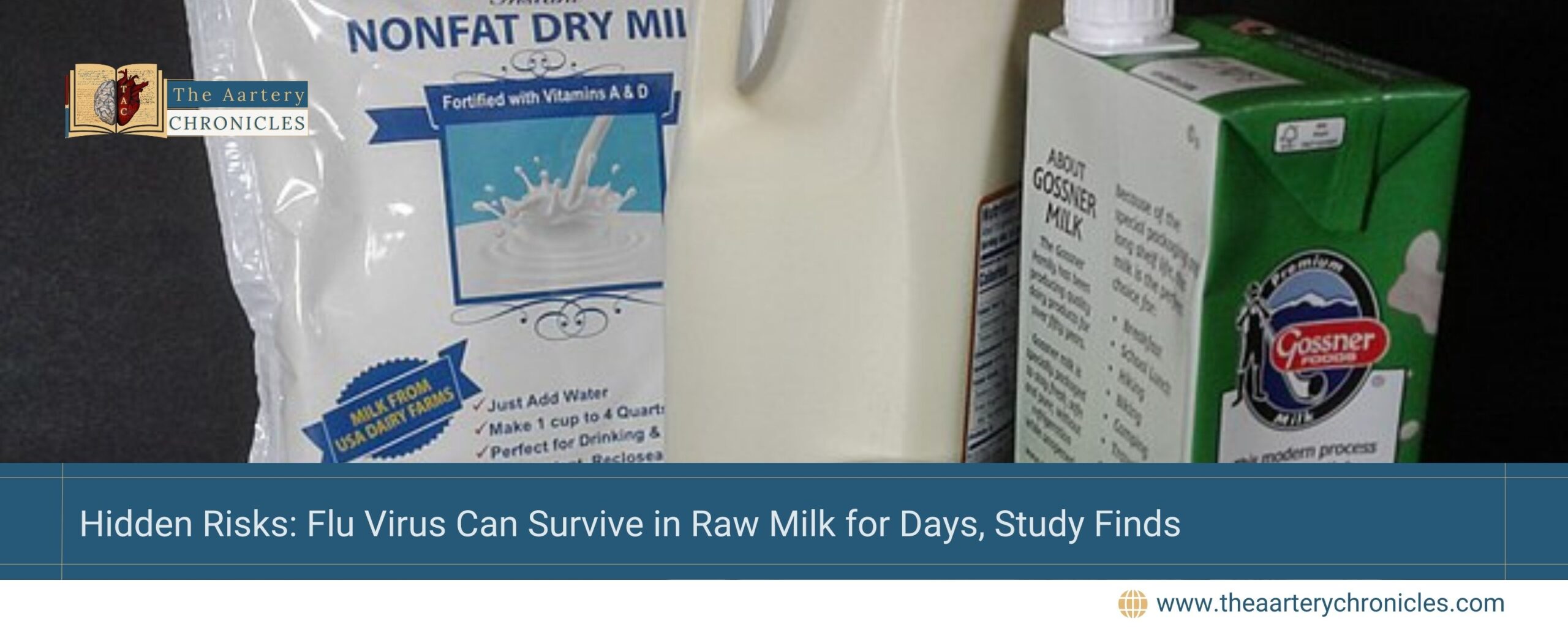

Hidden Risks: Flu Virus Can Survive in Raw Milk for Days, Study Finds
A recent study from Stanford University highlights a surprising risk associated with raw milk. Researchers found that the influenza virus, or flu, can remain infectious in raw milk stored in refrigerators for up to five days. This discovery, published in Environmental Science & Technology Letters on December 12, raises concerns about food safety and public health.
With bird flu outbreaks affecting dairy cattle, the study suggests raw milk could serve as a pathway for virus transmission, increasing the risk of spreading diseases to humans. The research reinforces the importance of pasteurization in reducing these potential dangers.
What Makes Raw Milk Different?
Raw milk is often promoted as a healthier alternative to pasteurized milk due to claims that it retains more nutrients, enzymes, and probiotics. However, unlike pasteurized milk, raw milk is not heated to kill harmful bacteria and viruses.
While some people believe raw milk offers health benefits, the U.S. Food and Drug Administration (FDA) links it to over 200 outbreaks of illnesses, including infections caused by E. coli and Salmonella. These risks are especially high for vulnerable groups like children, pregnant women, and people with weakened immune systems.
Key Findings of the Study
The Stanford team conducted tests to understand how long the flu virus can survive in raw milk. They focused on a strain of human flu virus (H1N1 PR8) under typical refrigeration conditions.
- Virus Longevity: The flu virus stayed infectious in raw milk for up to five days, posing a significant risk of contamination and transmission.
- Persistent RNA: Even after pasteurization, the virus’s genetic material (RNA) remained detectable for nearly two months. While RNA itself does not cause illness, it complicates efforts to monitor food safety and environmental health.
According to co-lead author Mengyang Zhang, the virus could also contaminate surfaces and equipment in dairy facilities, further spreading the infection.
The Role of Pasteurization
Pasteurization, which heats milk to kill harmful microbes, was highly effective in destroying the infectious flu virus. It also reduced the detectable viral RNA by 90%. This underscores why pasteurization is crucial for ensuring milk safety.
As senior author Alexandria Boehm explained, pasteurization significantly lowers the chances of disease transmission, making it a critical step in the dairy supply chain.
Why This Matters Now
Flu viruses infect millions of people in the U.S. annually, with thousands of deaths reported. While the current strain of bird flu hasn’t posed a major threat to humans, experts warn that mutations could change this.
The study’s findings are particularly relevant given recent cases of bird flu detected in dairy cattle. This raises questions about whether infected milk or dairy products could become a new source of disease transmission.
Broader Implications for Food Safety
The researchers also emphasized the role of environmental monitoring in identifying risks early. Earlier studies by the same team showed how wastewater surveillance could detect flu activity in nearby cattle populations. Public health officials could use these methods to respond to outbreaks before they spread widely.
“Using wastewater to track zoonotic diseases has been a game-changer,” said Boehm. This approach has already been adopted across the U.S. and internationally to monitor influenza and other pathogens.
Key Takeaway
This research is a timely reminder of the risks associated with consuming raw milk. While some may view raw milk as a natural alternative, the potential for it to harbour infectious viruses underscores the importance of pasteurization.
As bird flu continues to spread among livestock, enhanced monitoring and strict safety measures are essential to protect public health. By understanding these risks, we can make informed choices about the food we consume.
Source: Inputs from various media Sources
I’m a pharmacist with a strong background in health sciences. I hold a BSc from Delhi University and a pharmacy degree from PDM University. I write articles and daily health news while interviewing doctors to bring you the latest insights. In my free time, you’ll find me at the gym or lost in a sci-fi novel.









